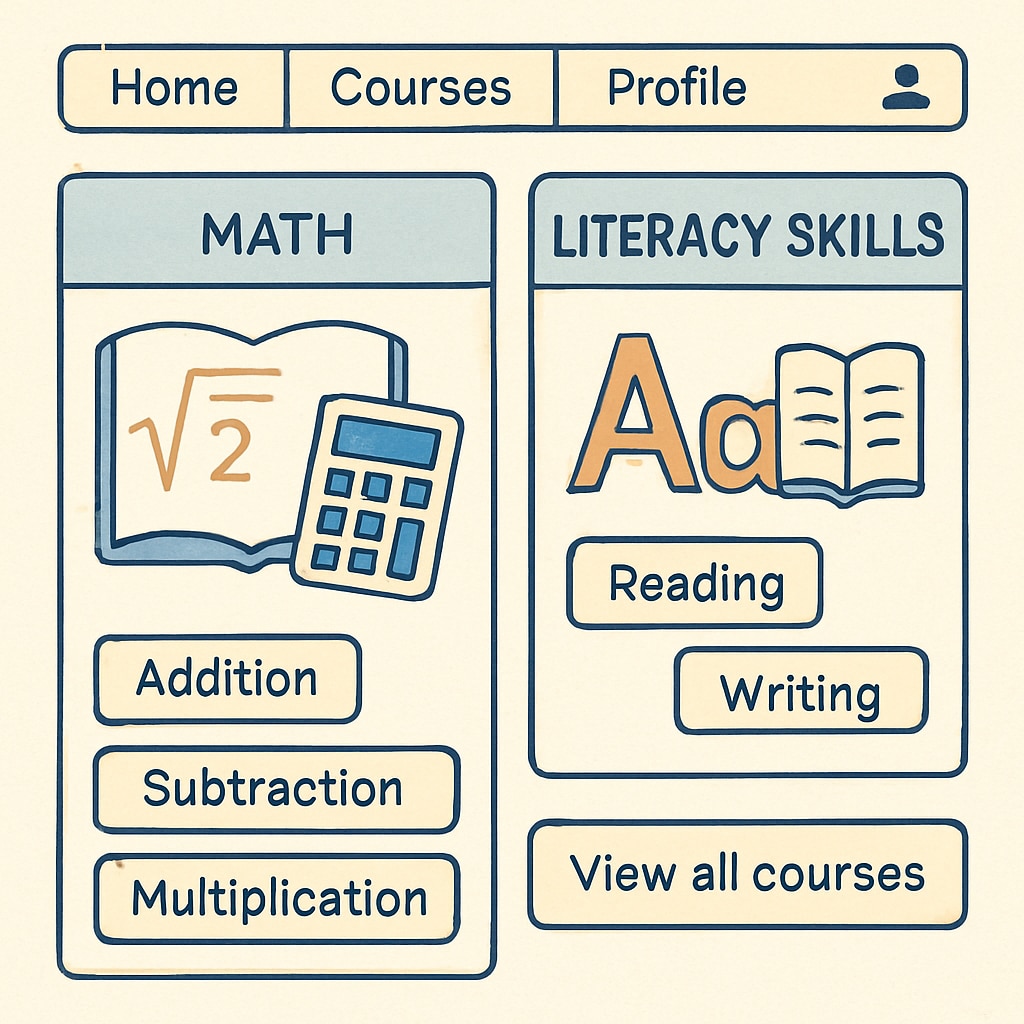For adults who missed traditional schooling due to various circumstances, addressing gaps in basic education can be daunting but highly rewarding. Self-learning offers a flexible and accessible way to tackle education deficiencies. This guide breaks down the essential steps to rebuild your educational foundation and provides actionable strategies for successful learning.
Preparing Your Mindset for Adult Learning
Embarking on a journey of self-learning as an adult requires mental preparation. Adults often face unique challenges, such as balancing education with work or family responsibilities, and overcoming self-doubt stemming from missed opportunities. However, with the right mindset, these barriers can be overcome.
- Acknowledge Your Starting Point: Accept where you are in your learning journey. This self-awareness can help you set realistic goals.
- Build Confidence: Focus on progress rather than perfection. Celebrate small achievements to stay motivated.
- Create a Growth-Oriented Routine: Dedicate consistent time to learning, even if it’s just 30 minutes a day.

Finding the Right Learning Resources
With a wide variety of resources available, adults seeking to fill gaps in their basic education can tailor their learning experience to their specific needs. Here are some effective tools and platforms:
- Khan Academy: Offers free courses in math, science, and other foundational subjects.
- Coursera: Provides access to courses from top universities, including beginner-level programs.
- Local Libraries: Many libraries offer free educational resources, including books, online classes, and tutoring services.
- Community Colleges: Affordable and flexible options for adults to pursue formal education or certifications.

Structuring Your Learning Process
Once you’ve gathered resources, it’s time to organize your learning journey. A structured approach ensures efficiency and reduces the risk of feeling overwhelmed. Here are practical steps:
- Set Clear Goals: Define what you want to achieve, whether it’s mastering basic math, improving literacy, or preparing for a GED test.
- Create a Study Schedule: Divide your time between subjects and stick to a consistent routine.
- Use Active Learning Techniques: Engage with the material through exercises, quizzes, and discussions.
- Track Your Progress: Regularly review your achievements and adjust your learning plan as needed.
Overcoming Common Challenges
Adults pursuing basic education often encounter obstacles such as time constraints, lack of motivation, or difficulty understanding complex concepts. Here are solutions to common challenges:
- Time Management: Use mobile apps like Google Calendar or Trello to plan study sessions.
- Motivation: Join online communities or study groups for accountability and support.
- Learning Difficulties: Seek tutoring or use interactive tools like videos and games to simplify challenging topics.
Remember, persistence is key. Every step forward, no matter how small, contributes to your overall progress.
Embracing Lifelong Learning
Adult education is not solely about catching up; it’s also an opportunity to explore new interests and develop skills that can enhance your career or personal growth. Lifelong learning fosters adaptability and resilience, which are invaluable in today’s ever-changing world.
In conclusion, addressing gaps in basic education through self-learning is an empowering process. With the right mindset, resources, and strategies, adults can overcome education deficiencies and unlock their full potential. Take the first step today and embrace the power of learning.


